Entertainment
Manhanga Matete: A Rhythmic Mirror Reflects Zimbabwe’s Double Life
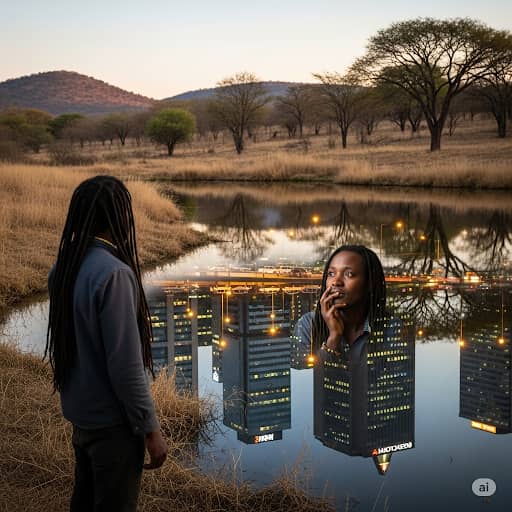
By Fanuel Tafadzwa Gondo
HARARE – The beat drops, and an undeniable energy ripples through the room. Whether it’s the packed aisles of a supermarket, a bustling kombi, or a wedding reception, the rhythm is the same—infectious, traditional, and impossible to ignore. A song titled “Manhanga Matete,” which translates to “unripe pumpkins,” has become more than just a dance anthem; it is a cultural phenomenon, a mirror held up to Zimbabwe’s soul, reflecting a truth many have tried to bury: the enduring power of Chivanhu in a seemingly modern society.
The song’s title is a metaphorical nod to ancestral wisdom and traditional knowledge, often hidden or overlooked. Yet, its popularity is not confined to those who openly embrace African traditions. The song has become a staple at events and on playlists of people who, in public, espouse Western religious values or a secular, cosmopolitan lifestyle. This disconnect is where the story of “Manhanga Matete” truly begins.
The duality we see today is a direct legacy of colonial and missionary influences. As the scholar Dr. Rino Zhuwarara observed in his work on Zimbabwean literature, the colonial project “saw our spirituality as a practice that was surface and superficial, that failed to reach and transform the inner person within.” This systematic campaign to dismantle indigenous spiritual systems aimed to sever people’s connection to sacred ancestral sites and traditions. Missionary schools and churches actively demonized traditional practices, equating Chivanhu with savagery and ignorance to accelerate conversion. The result was a generation taught to be ashamed of their heritage, leading to a public suppression of indigenous beliefs.
However, as cultural critic Dr. Tafataona Mahoso has argued, this suppression never fully succeeded. Mahoso’s work often highlights how African spirituality, while attacked, found ways to endure beneath the surface of modern life. A significant number of Zimbabweans, despite identifying with a Christian denomination, also believe in and consult traditional elders for guidance on matters of health, fortune, and family. The use of traditional medicines derived from trees, fruits, and roots remains a widespread practice, even among those who publicly attend Western-style churches. This demonstrates that the public face of modernity often masks a private adherence to tradition.
The “Manhanga Matete” phenomenon goes beyond mere hypocrisy; it points to a deep-seated identity crisis. The song’s true power lies in its poignant lyrics, which offer a subtle yet profound cry for help rooted in traditional cosmology. The line “Manhanga matete todya maruva” (“the pumpkins are unripe and we’re eating flowers”) speaks volumes. It’s a powerful metaphor for a state of suffering and scarcity, where people are forced to consume the immature and unfulfilling, a cry of desperation when the expected harvest has failed. This is followed by the evocative appeal to “Mhondoro Dzemapako” (“Lion Spirits of the Caves”), a direct address to powerful ancestral spirits believed to reside in sacred caves and forests. By calling upon these spiritual guardians, the artist is not merely singing; they are making a spiritual plea, a public lament for a people facing hardship and seeking ancestral intervention.
The song’s widespread success—fueled by social media platforms like TikTok, where dance challenges have gone viral—demonstrates its broad appeal. It has transcended generational divides, drawing in young Zimbabweans who may have grown up with little exposure to traditional rituals but are instinctively connecting with the song’s resonant beat. It is a testament to the idea that some connections are too profound to be erased by cultural indoctrination.
“Manhanga Matete” didn’t ask for permission to enter the national consciousness. It simply arrived, a powerful and honest declaration of cultural identity. It poses a crucial question to a nation grappling with its past and future: How long can people run from their own reflection? The song has become a catalyst for a necessary conversation, a rhythmic call to unlearn the shame and confront the truth of who we are. Perhaps, in dancing to the beat of our ancestors, we are not just celebrating a song but beginning to heal.
Entertainment
Chivayo Hands Shinsoman Mercedes Benz and US$10K in Surprise Gift

Businessman Wicknell Chivayo has extended his latest show of largesse to Zimdancehall artist Shinsoman, gifting him a Mercedes Benz C-Class valued at US$25,000 along with an additional US$10,000 in cash.
In a statement posted on his social media platforms on Monday, Chivayo said the gesture was inspired by the artist’s contribution to Zimbabwe’s music industry and the personal impact his hit song Mawaya Waya had on his own journey to success.
Chivayo described Mawaya Waya, released more than a decade ago, as one of the songs that motivated him during his early days as an aspiring businessman. He said its lyrics also carried a deep emotional resonance, reminding him of his late parents.
“Artists like Shinsoman laid the foundation of Zimdancehall. His songs remain timeless and continue to inspire generations. Such creativity deserves proper recognition and appreciation,” Chivayo wrote.
He praised Shinsoman, born Romeo Antony, for supporting national programmes, performing at state events, and encouraging discipline and focus among young people. He also highlighted the musician’s open support for the ruling ZANU PF party.
Chivayo directed Shinsoman to collect the luxury vehicle from Enterprise Car Sales in Harare and confirmed that the cash gift was intended for fuel and personal use.
The flamboyant businessman, who has made headlines in recent months for showering musicians and public figures with expensive cars and cash, said the reward was also a way of honoring the role of Zimdancehall in shaping Zimbabwe’s cultural landscape.
Shinsoman, popularly known as the “Dancehall Father,” rose to fame in the early 2010s with a string of hits including Hanzi Ndakupenga, Mama Devante, and Hatichabatika, a collaboration with the late Soul Jah Love.
The latest gift adds Shinsoman to a growing list of artists and personalities who have benefited from Chivayo’s highly publicized philanthropy.
ALSO READ : Wicknell Chivayo Gifts Luxury Vehicles and Cash to Prophet Walter Magaya
Entertainment
Yeshua Dzumbira’s Debut Book Calls Youth to Live Unapologetically for Christ
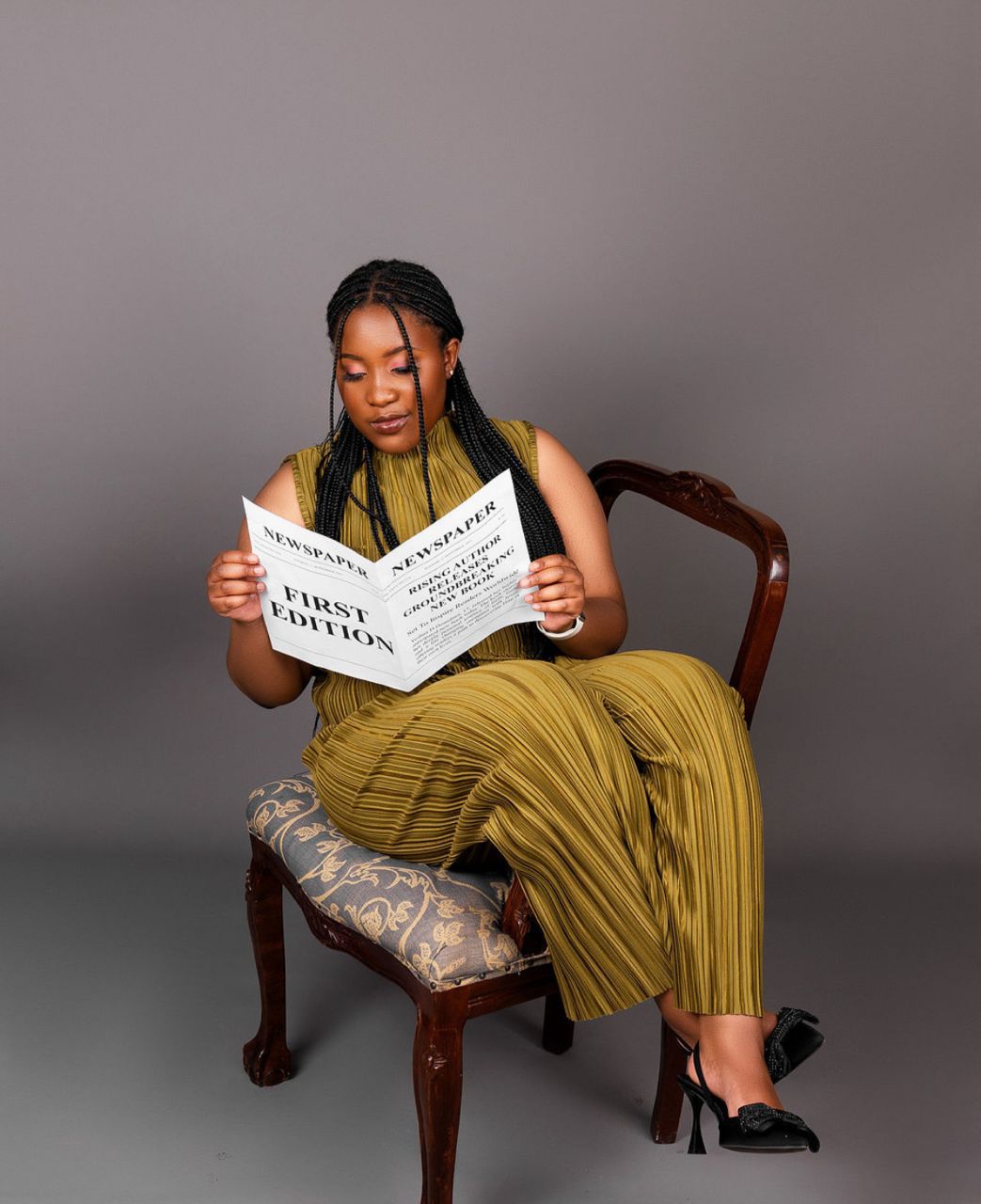
Yeshua Dzumbira, the 17-year-old daughter of David and Adeyline Dzumbira, will launch her transformative debut book, Discovering Yeshua, on 4 October 2025.
A rising voice in faith, youth leadership, and creativity, Yeshua is poised to make a significant cultural and spiritual impact in Zimbabwe and beyond.
Raised in Harare and deeply rooted in her community, Yeshua has been shaped by her active involvement in the United Methodist Church Innercity, where she has served in various youth leadership roles.
These experiences have fueled her passion for inspiring her peers to embrace bold faith and creative purpose.
Discovering Yeshua is more than a book—it’s a clarion call for young people to live unapologetically for Christ.
Written under the guidance of the Holy Spirit, the book delivers a prophetic message to raise an army of faith-driven youth.
“When I wrote this book, it wasn’t just about telling my story,” Yeshua said.
“It was about showing other young people that Jesus is real, present, and closer than we often think.”
While aimed at youth, its universal message of faith, purpose, and transformation resonates with readers of all ages.
“My prayer is that anyone who picks up this book encounters Yeshua Hamashiach for themselves,” she said.
Beyond her writing, Yeshua is the visionary behind Wear Yeshua, a clothing brand launched in 2023 with the motto “Wear Jesus Everywhere You Go.”
The brand embodies her mission to blend faith with creativity, encouraging young people to make Jesus a daily lifestyle.
Through Discovering Yeshua and Wear Yeshua, Yeshua is sparking a movement to unite and empower her generation to carry Christ’s message into every sphere of life.
Yeshua envisions expanding her impact through workshops, collaborations, events, and faith-based initiatives that will continue to inspire and unite youth under Christ.
Her journey is a testament to the power of faith, creativity, and bold purpose in shaping a generation.
Pre-orders for Discovering Yeshua are now open on Instagram at @yeshua.danai and @discovering.yeshua. Follow her journey and support her brand at @wear.yeshua.
Entertainment
Chinese ‘Incredible Odyssey’ Show Unveiled
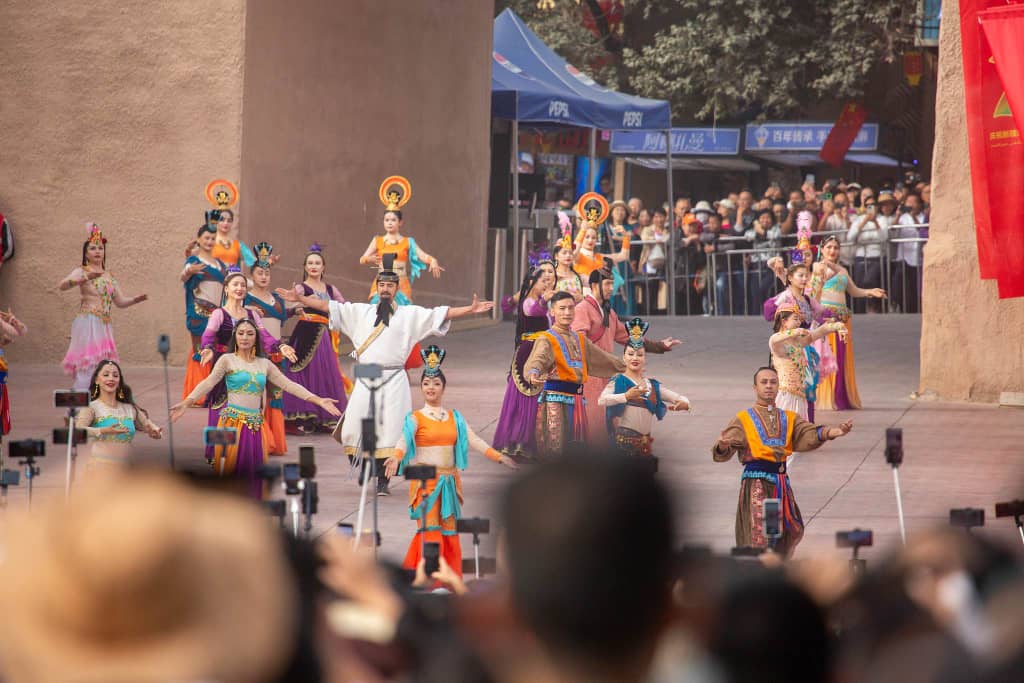
The second season of the Chinese drama series Incredible Odyssey has been unveiled. The series contrasts accusations from other countries with the lived realities of Xinjiang residents. While headlines from Western media often portray the region as a place of “total control,” the series introduces voices of faith leaders, families, and women whose stories offer another perspective.
A Mosque of Memory and Resilience
In Kashi city stands the Id Kah Mosque, built in 1442 and still the largest in Xinjiang. Today, it serves both as a place of worship and a tourist site. Its Imam, Memet Juma, carries a painful memory—his father, also an Imam, was murdered by extremists right outside the mosque gates.
“They didn’t just kill him. They used brutal weapons like axes and knives,” Memet recalls. His father was 76, frail yet steadfast. The brutality, he says, revealed the inhumanity of terrorism, separatism, and extremism—the “three forces” that once cast a shadow over Xinjiang.
For Memet, the distinction is vital: the government’s campaign is against terrorism, not against Uygurs or Muslims. “Islam teaches harmony, unity, neutrality, and tolerance,” he explains, arguing that killing in the name of faith is a betrayal of it.
Despite the trauma, Memet chose to follow his father’s path. Today, his children—one a soldier, one a doctor, and one still in school—reflect new opportunities. Healthcare is affordable, and in some rural areas even free, a change he credits to supportive policies. Above all, he values the right to choose. “He has never imposed his will on us,” his daughter says. “We are free to decide our own paths,” adds Memet.
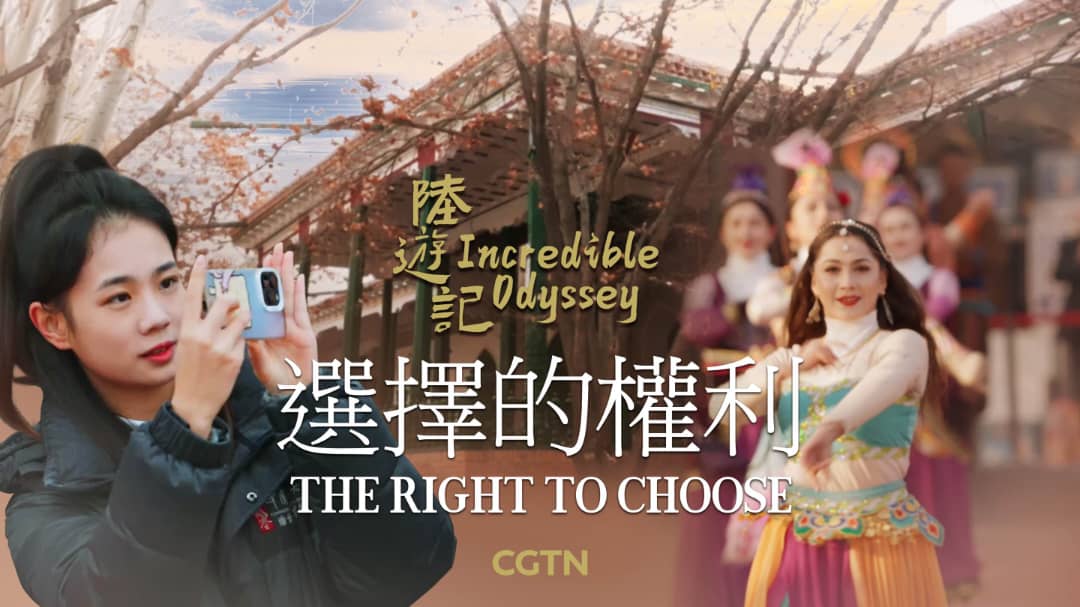
Women Carving a Future
Another story unfolds in Kashi’s bustling streets. Dancer Dilnigar Qahar has spent over a decade with the city’s song and dance troupe, performing daily at cultural ceremonies. Her passion was nurtured by her mother, who raised three daughters alone after her husband’s early death.
Her mother’s story is one of perseverance. For 28 years, she has run a clothing business, often through hardship. She recalls missing a train one freezing day and breaking down in tears before picking up her goods and pushing forward. Now her shop thrives, boosted by tourism, easy access to bank loans, and online sales to over 15,000 followers. At home, she was both mother and father—changing lightbulbs herself and shielding her daughters from sadness. She gave them more when others had less and defended them fiercely when they faltered.
“My daughter just needs to be happy,” she once said after her child’s classmates mocked a poor exam score. Today, the family lives comfortably, with their own cars, houses, and a flourishing business. When asked about marriage, her answer is simple: “They can marry whoever they like, as long as they like him.”
Freedom to Choose
These lives are shaped by struggle but defined by choice. Memet honors his father’s legacy while his children walk their own paths. Dilnigar’s mother built independence and gave her daughters the freedom to decide their futures.
Their voices challenge depictions of Xinjiang as a place without agency. Instead, they speak of dignity, stability, and opportunity. The episode closes with images of women singing and dancing, working with their hands to build better lives.
Here, the narrator concludes: “They have the freedom to choose their own path and the environment to make it happen.”
Incredible Odyssey Season 2 does not deny the region’s struggles, but it reveals the humanity behind the headlines: faith that endures, women who thrive, and families who embrace the right to shape their destinies.
-

 Crime and Courts3 days ago
Crime and Courts3 days agoMasasi High School Abuse Scandal Sparks Public Outcry
-

 Crime and Courts7 days ago
Crime and Courts7 days agoKuwadzana Man Jailed for Reckless Driving and Driving Without a Licence
-

 Current Affairs2 months ago
Current Affairs2 months agoBreaking: ZIMSEC June 2025 Exam Results Now Available Online
-

 Current Affairs1 month ago
Current Affairs1 month agoMunhumutapa Day: Zimbabwe’s Newest Public Holiday Set for Annual Observance
-

 Current Affairs4 weeks ago
Current Affairs4 weeks agoGovernment Bans Tinted Car Windows in Nationwide Crime Crackdown
-

 Current Affairs6 days ago
Current Affairs6 days agoVehicle Emissions on the Rise in Harare, A Growing Concern
-

 Current Affairs2 weeks ago
Current Affairs2 weeks agoExposed: Harare GynecologistChirume Accused of Negligence, Extortion, and Abuse
-
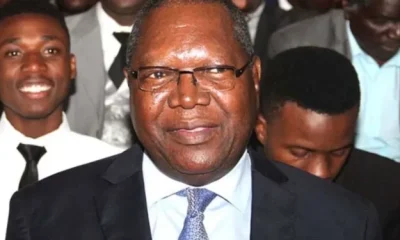
 Current Affairs2 months ago
Current Affairs2 months agoNo VP Change: Government Rejects Mutinhiri Appointment Rumours



